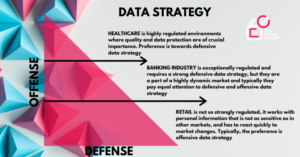As Communication in hybrid teams takes center stage, this opening passage beckons readers into a world crafted with insightful knowledge and practical strategies. In today’s work environment, where hybrid teams combine in-person and remote collaboration, effective communication is essential. It not only bridges the gap created by physical distance but also enhances team cohesion, productivity, and innovation.
Understanding the intricacies of communication in hybrid teams reveals crucial challenges, such as varied communication styles and technological barriers. By exploring essential tools, strategies, and innovative practices, teams can foster an environment where open dialogue thrives and misunderstandings are minimized.
Importance of Communication in Hybrid Teams
Effective communication in hybrid teams is crucial as it serves as the backbone of collaboration and productivity. With team members often working from different locations, clear and direct communication ensures that everyone is aligned with the team’s goals, objectives, and progress. Without strong communication channels, misunderstandings can arise, leading to decreased morale and productivity.However, hybrid teams face several key challenges in communication.
Issues such as technological discrepancies, varying levels of engagement, and time zone differences can hinder effective dialogue. It is essential to navigate these challenges to maintain a cohesive team environment. The impact of effective communication on team cohesion cannot be underestimated; it fosters trust and collaboration among members, ultimately boosting overall productivity.
Key Challenges in Communication
The challenges faced by hybrid teams in communication include:
- Technological Issues: Inconsistent access to technology can lead to communication breakdowns.
- Geographical Barriers: Time zone differences can complicate scheduling and real-time communication.
- Engagement Levels: Remote members may feel isolated, impacting their participation and communication.
- Cultural Differences: Variations in communication styles influenced by cultural backgrounds can lead to misunderstandings.
Tools for Communication in Hybrid Teams
Utilizing the right tools is essential for effective communication in hybrid work environments. The variety of platforms available can address different communication needs, ensuring seamless interaction among team members.
Essential Communication Tools

To facilitate efficient communication, the following tools are highly recommended:
- Slack: Known for its user-friendly interface and integration capabilities, Slack allows for real-time messaging and file sharing.
- Microsoft Teams: Offers a comprehensive suite including chat, video conferencing, and document collaboration, making it ideal for hybrid environments.
- Zoom: A leading video conferencing tool that supports high-quality virtual meetings and webinars.
- Trello: A project management tool that enhances team collaboration through boards and task assignments.
Best Practices for Video Conferencing
Video conferencing is a critical component of hybrid team communication. To leverage video calls effectively, consider these best practices:
- Prepare in Advance: Set agendas and share them beforehand to keep meetings focused.
- Engage Participants: Use visual aids and encourage questions to foster interaction.
- Test Technology: Ensure all equipment works properly before the meeting to avoid disruptions.
Strategies for Enhancing Communication
Crafting an effective communication strategy tailored to hybrid teams can significantly enhance collaboration. This strategy should address specific needs and foster an open communication culture.
Tailored Communication Strategy

Designing a communication strategy for hybrid teams involves several key elements:
- Establish Clear Protocols: Define how and when to communicate through various channels.
- Encourage Open Dialogue: Create an environment where team members feel safe to express concerns and ideas.
- Implement Regular Check-Ins: Schedule consistent meetings to monitor progress and address any issues.
Business Innovation in Hybrid Work Environments
Innovative communication practices can tremendously benefit hybrid teams, fueling creativity and collaboration. Successful companies are leveraging these practices to foster a culture of innovation.
Innovative Practices
Examples of innovative communication practices include:
- Virtual Brainstorming Sessions: Using digital tools to collaboratively generate ideas in real-time.
- Feedback Loops: Regularly soliciting input from team members to refine processes and projects.
- Cross-Functional Collaboration: Encouraging communication between different departments to spur creativity.
International Business and Hybrid Teams
In an increasingly globalized work environment, communication styles often vary across cultures, impacting hybrid teams. Understanding these differences is crucial for effective collaboration.
Cultural Barriers and Solutions
Overcoming cultural barriers in hybrid communication involves:
- Training and Awareness: Providing cultural competency training to enhance understanding among team members.
- Encouraging Flexibility: Adapting communication styles to suit diverse backgrounds.
- Utilizing Clear Language: Avoiding jargon and idioms to minimize misunderstandings.
Communication and Business Management
Effective communication is vital for successful business management, especially within hybrid teams. It directly influences team morale and performance.
Fostering Transparent Communication
Managers can create an environment of transparency by:
- Sharing Information: Keeping team members informed about company updates and changes.
- Encouraging Feedback: Actively seeking input from team members to enhance engagement.
- Modeling Open Communication: Demonstrating effective communication practices as leaders.
Marketing Direct Communication in Hybrid Teams
Hybrid teams can significantly enhance direct marketing efforts through strategic communication. By leveraging their diverse expertise, teams can create impactful marketing campaigns.
Messaging Strategies
Key messaging strategies for hybrid marketing teams include:
- Consistency: Ensuring uniform messaging across all channels to build brand trust.
- Personalization: Tailoring messages to meet the specific needs of target audiences.
- Utilizing Data: Analyzing customer feedback to refine marketing approaches.
Team Building Activities to Improve Communication
Team-building activities are essential for improving communication in hybrid environments. They foster collaboration and strengthen relationships among team members.
Inclusive Team-Building Activities
Here are some activities designed for hybrid teams:
- Virtual Escape Rooms: Encourages teamwork and problem-solving in a fun setting.
- Online Trivia Competitions: Promotes friendly competition and engagement among team members.
- Collaborative Workshops: Provides opportunities for skill-sharing and collective brainstorming.
Workplace Communication Challenges
Hybrid workplaces often encounter various communication challenges that can disrupt collaboration. Identifying and addressing these issues is essential for maintaining a productive environment.
Addressing Communication Challenges
Common communication challenges and their solutions include:
- Misunderstandings: Implementing clarification practices to ensure all messages are accurately interpreted.
- Conflict Resolution: Establishing clear protocols for addressing conflicts stemming from communication issues.
- Regular Feedback Sessions: Creating occasions for discussing challenges and improving communication strategies.
Business Networking in Hybrid Environments
Networking is crucial for professionals in hybrid roles, and effective communication plays a central role in building and maintaining relationships.
Networking Strategies
To enhance networking in hybrid environments, consider these strategies:
- Utilize Online Platforms: Engage in professional networks like LinkedIn to connect with industry peers.
- Attend Virtual Conferences: Leverage online events to meet new contacts and expand your network.
- Follow Up: Maintain relationships by regularly checking in with connections met online.
Last Recap
The exploration of Communication in hybrid teams illustrates that effective strategies are not merely optional but vital for success. By implementing the right tools and fostering an inclusive culture, organizations can enhance collaboration and creativity. Ultimately, addressing the unique challenges of hybrid environments enables teams to thrive in a rapidly changing business landscape.
FAQs
What are the key challenges in hybrid team communication?
Key challenges include time zone differences, varying communication styles, and reliance on technology, which can lead to misunderstandings.
How can teams ensure effective communication in hybrid settings?
Teams can ensure effective communication by using a combination of reliable tools, establishing clear protocols, and encouraging regular check-ins.
What role does leadership play in communication within hybrid teams?
Leadership is crucial as it sets the tone for open communication, fosters transparency, and motivates team members to express their ideas and concerns.
How can team-building activities improve communication in hybrid teams?
Team-building activities can enhance communication by promoting collaboration, breaking down barriers, and fostering stronger interpersonal relationships among team members.
What tools are essential for communication in hybrid teams?
Essential tools include project management software, instant messaging apps, video conferencing platforms, and collaborative document sharing services.




